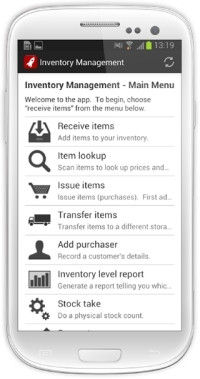It's the end of Q1 2014 and Pip Witheridge, founder and CEO of Grove, is preparing to close off the numbers... and all on the back of a global tour to meet customers, suppliers and technology companies across Africa, Europe and USA.
This included a visit to Google as one of the Top Partners Globally, at its annual Partner Kick-Off event in San Francisco. This sort of trip and exposure gives context and perspective to new developments in the tech environment, the challenges facing companies in South Africa, and the opportunities for innovation and positive change.
Although we can't predict what kind of effect these "tech plays" will have on the industry, what we can say is that mobility, data and innovation are most definitely at the forefront. The challenge that Witheridge sets for his customers, and internally at Grove, is to make sure that we embrace change and are able to continue to grow in our ability to innovate.
With that in mind, below is a list of Witheridge's top five "plays" in the global technology market for 2014:
1. Google to acquire Nest
No longer satisfied to be a mere search engine, Google continues to show interest in new cutting-edge technology. On 13 January 2014, it entered into an agreement to buy Nest Labs for $3.2 billion in cash.
Why? As Witheridge says, although he "can't speak for Google", perhaps it is not so much the thermostat technology Google was after, but the data it produces - and how that data, if analysed correctly, can benefit consumers. Nest's signature product is its thermostat, which learns its owner's behaviour. Rather than having to figure out how to programme the thermostat to change its temperature for various times of day, in time, the thermostat learns the homeowner's routines and adjusts automatically.
One of the most useful things about Nest is its app. Using a mobile device, homeowners can check the thermostat's settings and adjust them from anywhere. Both of the company's products are considered the best in the industry, which is likely why Google took interest. It's not yet clear exactly how Google plans to use Nest, but the company obviously sees it as an important part of its future. A combination of Nest's home solutions coupled with Google's language recognition could give Google its strongest path yet into your home. For more reading on this acquisition and what it means, click here .
2. Nokia introduces Android smartphones
24 February 2014 - Nokia announced it is now offering a line of Android-powered smartphones. These phones will be low-cost entry-level devices that will be run through the Google Android operating system, introducing the Nokia X line, which includes the Nokia X, the Nokia X+ and the Nokia XL. What makes Nokia's new devices particularly interesting is that they are equipped with Android. So, does Nokia really need to do this? It certainly thinks so. But how will this relationship play out? For more reading on this deal, click here.
3. Facebook buys WhatsApp

19 February 2014 saw Facebook acquire WhatsApp. Mark Zuckerberg said the deal started to take shape on 9 February, when he invited the owner of WhatsApp, Koum, to dinner and proposed that an acquisition could help both companies accelerate their growth and connect the world. Does Facebook really need a messaging platform? Probably not - it has lots of users already. So what is it that the company was after? Could it be the network? Could it be the reach? Or maybe an alternative and complementary platform to launch a FinTech move... The acquisition positions the company for even stronger growth on mobile phones. Zuckerberg was quoted saying: "Our mission is to make the world more open and connected. We do this by building services that help people share any type of content with any group of people they want. WhatsApp will help us do this by continuing to develop a service that people around the world love to use every day." The acquisition positions the company for even stronger growth on mobile phones, where advertising now makes up the majority of its revenue. For a video and more of what Zuckerberg said about this acquisition, click here.
4. Samsung's improved Tizen OS
Tizen, the open source OS it jointly develops with Intel, has powered the company's smartphones that are coming later this year. Samsung has worked to incorporate parts of its Android design language, particularly in the apps drawer, notification tray and home screen widgets. Not only do they look better, each of the elements are more feature rich than before, offering users greater control over the device and making it feel like a complete platform. This move allows for control of the consumer through the platform, as Witheridge coins, "the mobile play". Is that what is driving Samsung to move away from Android or incorporate components of it? Click here for a video of Samsung Tizen prototype hands-on - 2014.
5. Mozilla to bring $25 smartphone using Firefox OS
According to Witheridge, all of the above makes a lot more sense when considering the fact that you could have a mobile phone, a smart mobile phone, in your pocket for $25. Firefox OS, an upstart smartphone operating system aimed at challenging the Apple and Google duopoly, will power a new category of $25 smartphones for developing countries. Most people in many developing countries are still offline. Therefore, the introduction of smartphones like the ones Firefox are going to be introducing will allow for more people around the world to access the World Wide Web and to be online. For more information on this, click here.
Mobility is most definitely at the forefront of innovation in the tech world. If you'd like to find out more about how to mobilise your business processes, contact Grove at aornellas@groveis.com or visit us here.
Share
Editorial contacts